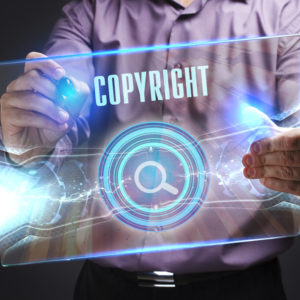The sudden changes to our society and economy caused by the COVID-19 pandemic have challenged Americans’ capacity to innovate, demonstrating once again how indispensable the internet is to human ingenuity and productivity.
We’re living indoors and online, and the fact that our transformed lives are still occupied, engaged, aspiring and fulfilling is a testament to the sweeping utility of the 20th century’s most life-changing invention.
Right now, our commerce, our educational system, our social bonds and our physical and mental health are maintained and sustained online. We’re working from home on Slack while our kids watch YouTube lessons from their teachers.
The internet enables easy access to news and commentary, allowing us to comment and share our discussion and analysis of it. We’re streaming yoga lessons from local studios looking to make up for lost revenues.
Our entertainment comes from nights with our friends on Houseparty, our recipe ideas from Pinterest and we can enjoy film festivals and concerts from our couch.
These profoundly unusual times have given us an enhanced appreciation for the need for technology and internet platforms. Eighty-eight percent of those polled acknowledged a “better appreciation” technology’s role in helping culture and society.
What we almost never think about are the foundational legal frameworks behind those platforms that help us everyday but lately have become part of our collective economic and societal lifeline.
Internet platforms like Instagram are made possible by Section 512 of the Digital Millennium Copyright Act (DMCA), which protects the rights of copyright holders without depriving our society of the innovations we need to thrive economically, educationally, physically and emotionally.
The most basic internet services and tools that we all rely on require balanced copyright laws. The DMCA was established to “maintain a balance between the rights of authors and the larger public interest, particularly education, research and access to information.”
The law recognizes the rights of copyright holders while protecting consumers and allowing creativity and innovation to flourish online. Specifically, Section 512 of the DMCA creates a “safe harbor” system with checks and balances that empower copyright holders to send notices asking that infringing work is removed while those that post it can challenge the removal.
As long as an internet platform follows the rules, they are not liable if the content is infringing.
Unfortunately, this fair and necessary balance is threatened by proposals from the entertainment industry to weaken the DMCA. It wants to effectively allow copyright holders to suppress most online content and creativity.
Millions of Americans earn billions of dollars from content they create and post to internet platforms, whose viability is protected by Section 512. This is not just about allowing free speech and creativity on YouTube, Facebook Live and more videos.
The internet platforms backed by the DMCA are also responsible for helping restaurants to share their daily takeout menus on Facebook or for a small business to showcase its products on Instagram. Without the DMCA, online platforms, which we rely on now during the COVID-19 pandemic more than ever, would be forced to censor content excessively out of an abundance of caution to avoid being liable for copyright infringement.
That would mean even perfectly legitimate and non-infringing content will be removed or pre-emptively blocked just because an app or website can’t afford the legal risk.
Proposals from entertainment industry gatekeepers that would force an end to safe harbors threaten to chill free expression, stifle innovation, close down popular internet platforms, restrict consumer choice and create a tsunami of expensive copyright litigation.
Giving the content gatekeepers that kind of power over American’s free expression, economic growth and innovation is particularly incomprehensible at a time when many American businesses and consumers are facing their own economic uncertainties.
Imagine an America where hundreds of millions of us are staying at home to stop the spread of a lethal virus while we are deprived of online activities we rely on because we no longer have sensible and equitable copyright laws that include safe harbors.
We might not be able to save files to Dropbox or the Cloud. Teachers couldn’t make instructional videos on YouTube for our children, and a professor couldn’t livestream his class on Zoom. Access to valued news sources and informative blogs would diminish.
We might not be able to buy face masks on Etsy or eBay or livestream concerts on Instagram Live. Social media we depend on for our family’s entertainment — Instagram, Twitter and Facebook — would be at risk.
These aren’t exaggerated scenarios but realistic prospects should entertainment industry gatekeepers be permitted that kind of commanding control over the internet, and with it, our economy and society. In an age of unrivaled innovation and creativity, the adage still holds true: if it ain’t broke, don’t fix it.
The DMCA works, and in the time of COVID-19, when so many of us have daily cause to realize how much we now rely on the internet for business, education, entertainment and social fulfillment, we should stand fast against all attempts to upset the balance that allows our creativity and innovations to flourish and that transforms even such a trying time into an age of wonder.

